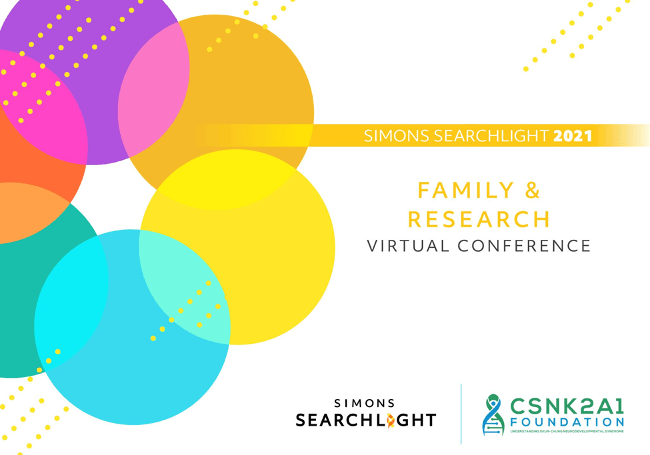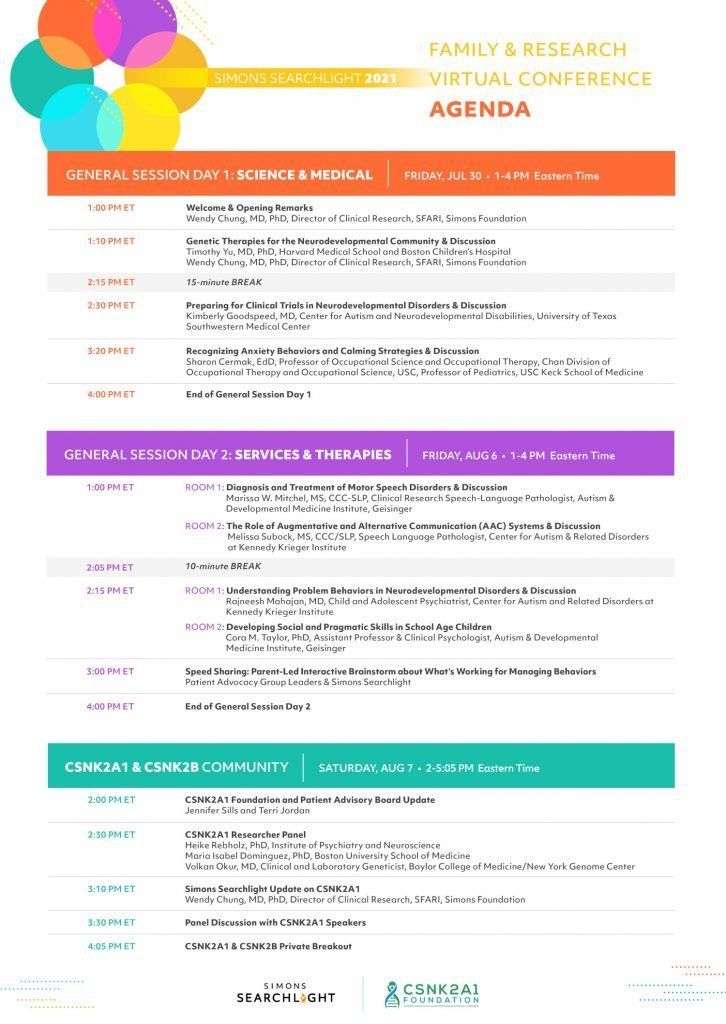Simons Searchlight 2021 Family & Research Conference

Our friends at Simons Searchlight have announced their 2021 Virtual Family & Research Conference and you’re invited!
- Presentations for general sessions are based on a daily theme: Science & Medical on July 30 and Services & Therapies on August 6.
- Plenty of time for Q&A throughout the conference.
- CSNK2A1 & CSNK2B community presentations for sharing knowledge and having discussions.
- Networking opportunities to connect with other families, researchers, and organizations.
- Multi-language captioning (subtitles) for all presentations.
Below is important registration information:
- Register here for the general session presentations on Friday, July 30 & August 6, 1:00 PM to 4:00 PM ET
- Register here for the CSNK2A1 & CSNK2B presentations on Saturday, August 7 from 2:00 to 5:05 PM ET
If you have any questions about the conference, you can reach out to Simons Searchlight at conference@simonssearchlight.org .
About Simons Searchlight and joining the study
Simons Searchlight is an international research study that is on a mission to speed up the genetic science of disorders related to autism and brain development.
To grow knowledge around CSNK2A1 and CSNK2B, we encourage all families to register in Simons Searchlight.
The process to join is simple and is done online — all you have to do is register, upload your genetics result report, and complete surveys, including a phone interview with a genetic counselor.
The best part is that Simons Searchlight is sharing all this information with medical professionals and researchers who are interested in studying CSNK2A1 and CSNK2B. We know that in rare disease research, it is so important for everyone to be counted – that means YOU!
Learn more about Simons Searchlight here .
Download a pdf of the below agenda
here
.

